Violins of Hope: Converse Celebrates Music and the Human Spirit
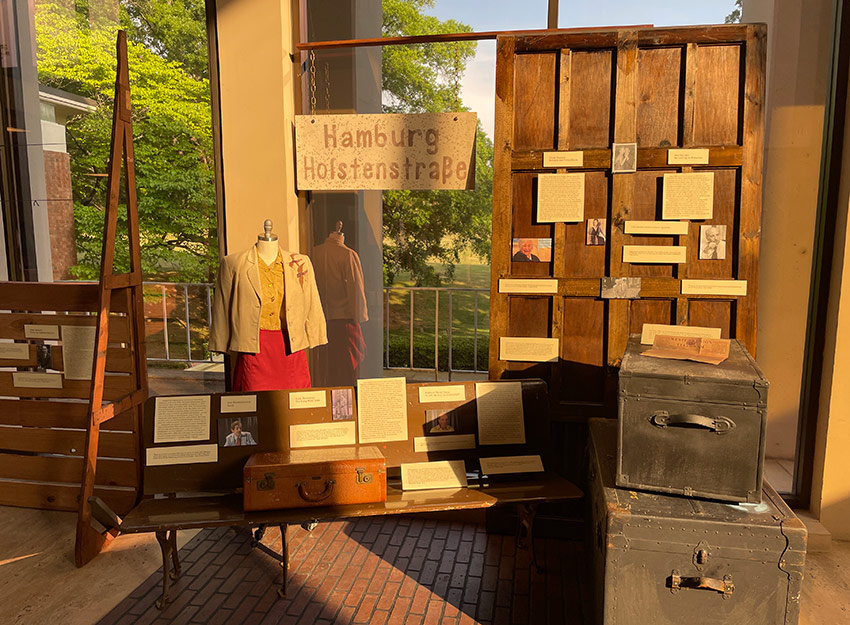
History students, the Petrie School of Music, Associate Professor of History Dr. Angela Elder, Assistant Professor of Violin and Viola Dr. Courtney LeBauer, and Associate Professor of Theatre Meg Hanna Tominaga collaborated with Wofford College for ‘Violins of Hope.’ The partnership resulted in an exhibition and musical performance based on a private collection of violins, violas and cellos collected since the end of World War II. All instruments belonged to Jews before and during the war, with many donated by or bought from survivors.
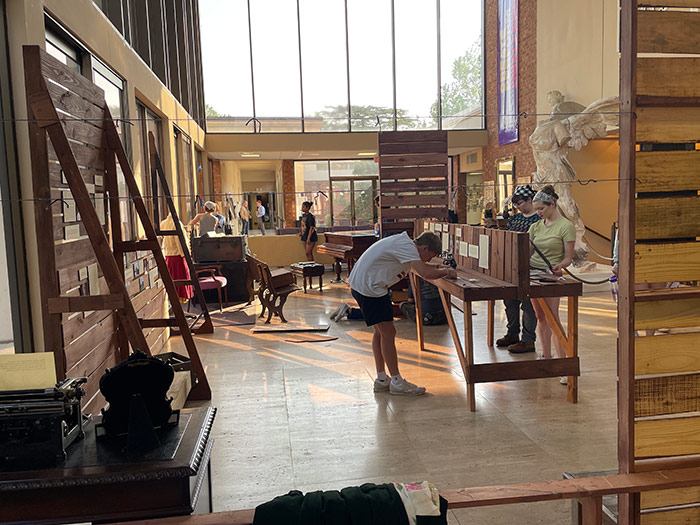
Dr. Elder’s Public History course students visited Spartanburg history sites, museums, and exhibits, drawing inspiration and wisdom from local history experts and professionals. Students then researched oral histories with connections to South Carolina, available through the United States Holocaust Memorial Museum.
History and English major Rachel Black ’23 (Nisbet Honors) played a significant role in developing this exhibition, calling it her ‘passion project.’
“I quickly became emotionally invested and I know our public history class feels the same way,” Rachel said. “We’re all thankful for the experience to be a part of something so powerful and raw.”
“I felt confident that our hard work had paid off when I saw how the exhibit evoked an emotional response in so many people.”
Rachel Black ’23
In her role as public history intern, Rachel contacted members of the Converse community to contribute photos of Holocaust-related sites they had visited. She curated many of the artifacts and, with the support of Professor Meg Tominaga, created a slideshow.
“I grew to feel a real connection to the individuals whose oral histories I listened to,” Rachel said. “I felt confident that our hard work had paid off when I saw how the exhibit evoked an emotional response in so many people.”
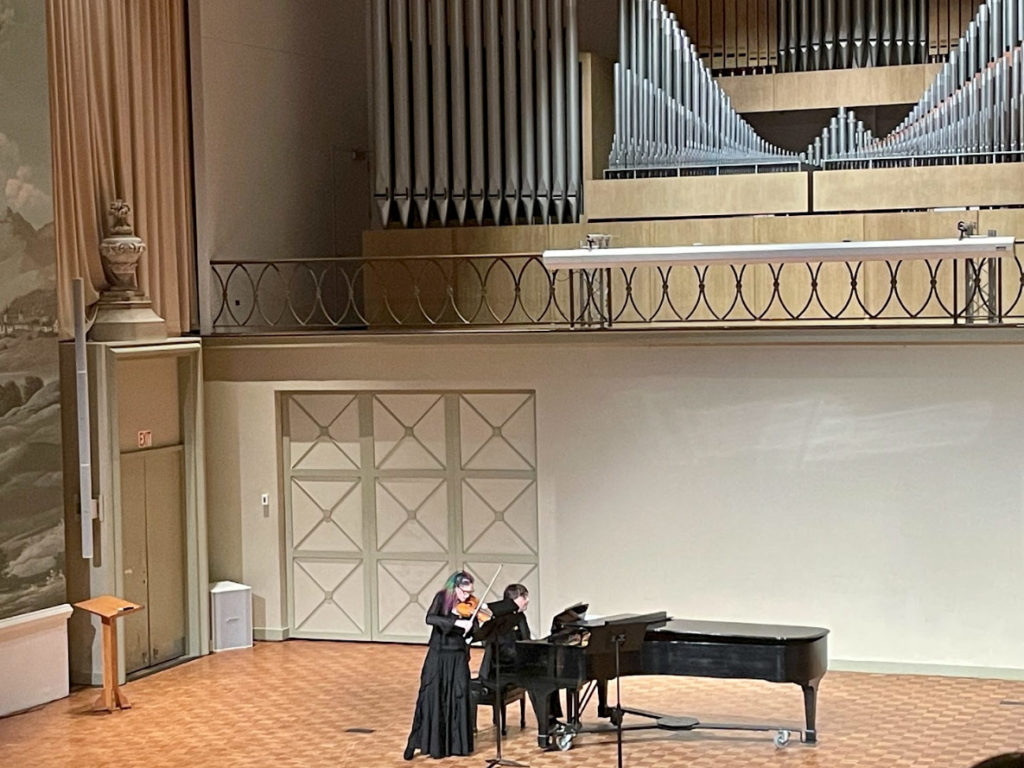
Under the direction of Dr. Courtney LeBauer, a powerful musical performance on hope was created to support the exhibition.
This performance featured Dr. LeBauer on the two violins from the Violins of Hope project and guest speaker Dr. James Grymes, author and Professor of Musicology at UNC Charlotte. Dr. Grymes is the author of the book, Violins of Hope: Violins of the Holocaust—Instruments of Hope and Liberation in Mankind’s Darkest Hour.
The Violins of Hope web page states, “All instruments have a common denominator: they had to do with the war. To be more specific, they had to do with the holocaust – death or survival. And hope. All instruments were symbols of hope and a way to say: remember me, remember us. Life is good, celebrate it for those who perished, for those who survived. For all people.”
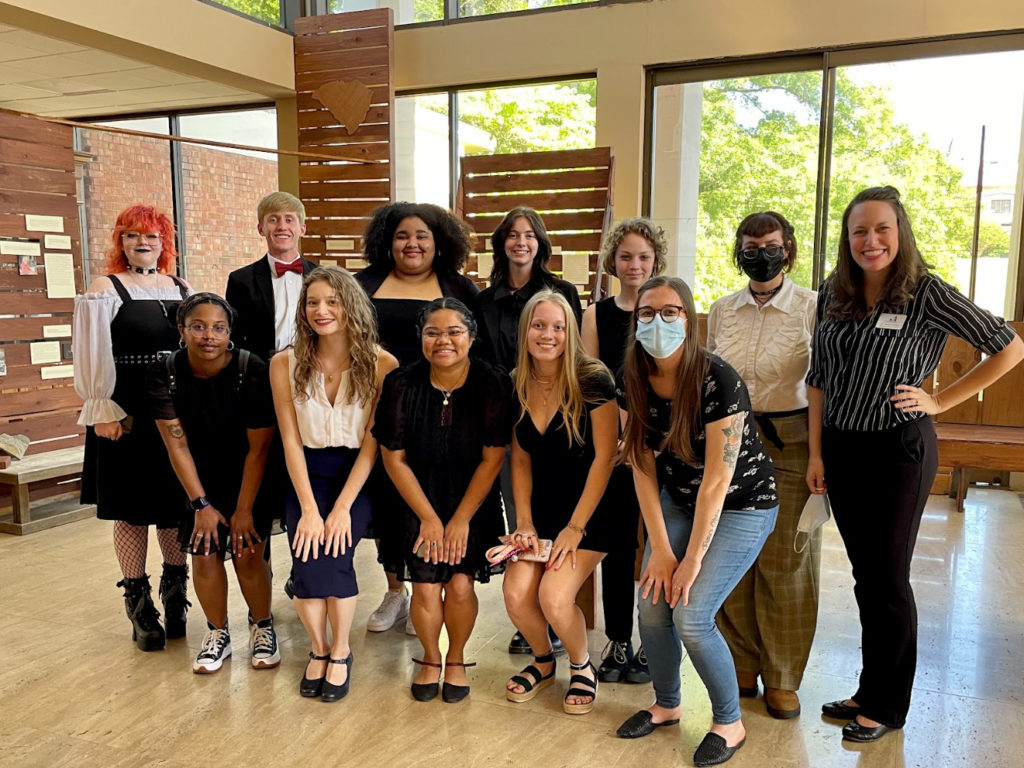
Dr. LeBauer, Assistant Professor of Violin and Viola at Converse, said it wasn’t easy to put into words how it felt to play on some of the sacred violins. “At first, it felt very eerie, as though I were not really playing them, but rather just barely manipulating them, almost like pushing buttons, and they sang on their own from themselves,” she said. “To hold them in my hands felt like hugging or caressing, and really feeling their pain and survival. They [the instruments] each had very strong personalities with very clear opinions of what they wanted to play!”
She and her students, so in tune with the instruments’ various personalities, ultimately let the violins “choose” which pieces to play.
“With words, you can elevate people and make them feel great about themselves. “
Al Miller
Following the lecture-recital, 99-year-old Holocaust survivor Al Miller spoke virtually via Zoom, of his life and experiences escaping Berlin, coming to the USA via Switzerland, and joining the American Army.
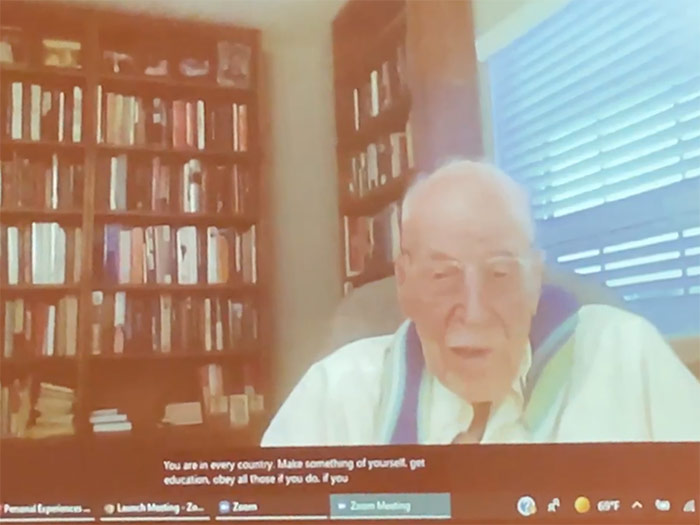
Miller, who is LeBauer’s Great-Uncle and surrogate Grandfather, recalled the poignant, hopeful words of an American immigration officer that have stayed in his heart. The officer told Miller to make the most of his time now that he was in the United States by seeking an education and making something of himself. Miller spoke of himself as an introvert who struggled to look people in the eye. “He changed all that with one sentence,” Miller said of the immigration officer.
Miller said, “Words are ever so powerful. With words, you can elevate people and make them feel great about themselves. Or you can do the opposite. It’s all up to you; the choice is yours.”